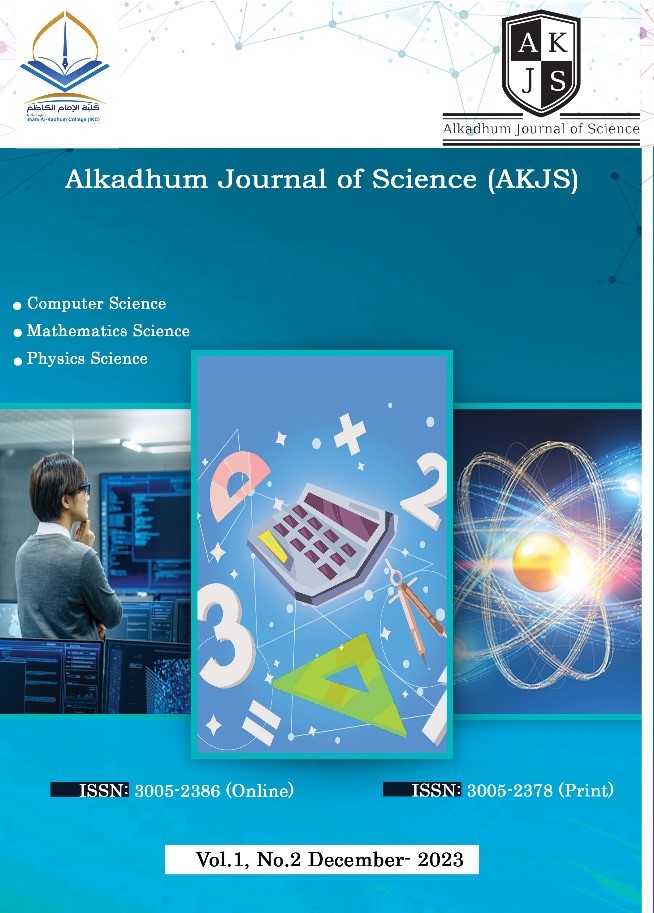An Explainable Content-Based Course Recommender Using Job Skills
Main Article Content
Abstract
The large number of courses offered in universities and online studies made it difficult for students to choose the courses that suit their interests and career goals, which led students to lose many opportunities to be employed in the job they wanted. To keep pace with the rapid development of technology, and instead of relying on the job title as was previously done, the employers began to identify the skills required for a job. The competencies of the candidates are then examined and evaluated according to those requirements. Thus, it has become necessary for students to take courses that suit their future professional interests, ensuring that they are employed in the job they desire and supporting their long-term career success. Fortunately, the emergence of skills-based employment has provided an opportunity for universities and colleges to create a clearer path to the courses offered to allow students to take courses that match their future career interests. In this study, we used K-Mean clustering algorithm, TF-idf approach, and content-based filtering algorithm to provide relevant courses for students based on the required job with an explanation of why these courses are recommended. Our result illustrates that our method offers many advantages compared with other recommender systems. our system converts a simple course recommendation into a tool for discovering skills. Since many recommendation systems work as black boxes, we designed our system to recommend the relevant course with explaining why these courses are recommended, which will add a factor of transparency to our system and confirms the reliability of the system to the students.
Downloads
Article Details
References
B. Ma, “Course Recommendation for University Environments,” Proc. 13th Int. Conf. Educ. Data Mining, EDM 2020, vol. 1, no. Edm, pp. 460–466, 2020.
B. Mondal, O. Patra, S. Mishra, and P. Patra, “A course recommendation system based on grades,” 2020 Int. Conf. Comput. Sci. Eng. Appl. ICCSEA 2020, 2020, doi: 10.1109/ICCSEA49143.2020.9132845.
Adomavicius, Gediminas, and Alexander Tuzhilin. "Toward the next generation of recommender systems: A survey of the state-of-the-art and possible extensions." IEEE transactions on knowledge and data engineering 17.6 (2005): 734-749.
Geetha, G., Safa, M., Fancy C., Saranya D. "A hybrid approach using collaborative filtering and content based filtering for recommender system." Journal of Physics: Conference Series. Vol. 1000. IOP Publishing, 2018.
P. V. Kulkarni, S. Rai, and R. Kale, “Recommender System in eLearning: A Survey,” no. January, pp. 119–126, 2020, doi: 10.1007/978-981-15-0790-8_13.
Nallamala, Sri Hari, et al. "A Brief Analysis of Collaborative and Content Based Filtering Algorithms used in Recommender Systems." IOP Conference Series: Materials Science and Engineering. Vol. 981. No. 2. IOP Publishing, 2020.
P. Melville and V. Sindhwani, “Encyclopaedia of Machine Learning: Recommender Systems,” Encycl. Mach. Learn., pp. 829–838, 2010, [Online]. Available: https://link.springer.com/content/pdf/10.1007/978-1-4899-7687-1_964.pdf%0Ahttps://link.springer.com/referenceworkentry/10.1007%2F978-0-387-30164 8_705%0Ahttps://link.springer.com/book/10.1007/978-0-387-30164 8%0A%0Ahttp://vikas.sindhwani.org/recommender.p.
Gönül, M. Sinan, Dilek Önkal, and Michael Lawrence. "The effects of structural characteristics of explanations on use of a DSS." Decision support systems 42.3 (2006): 1481-1493.
J. Daher, A. Brun, and A. Boyer, “A Review on Explanations in Recommender Systems To cite this version : HAL Id : hal-01836639 A Review on Explanations in Recommender Systems,” 2018.
B. Behkamal, B. B. Haghighi, and A. T. Haghighi, “A heuristic method for curriculum planning based on students ’ interest,” pp. 19–21, 2019.
Z. A. Pardos and W. Jiang, “Designing for serendipity in a university course recommendation system,” ACM Int. Conf. Proceeding Ser., pp. 350–359, 2020, doi: 10.1145/3375462.3375524.
A. Esteban, A. Zafra, and C. Romero, “Helping university students to choose elective courses by using a hybrid multi-criteria recommendation system with genetic optimization,” Knowledge-Based Syst., vol. 194, p. 105385, 2020, doi: 10.1016/j.knosys.2019.105385.
G. Zhu, Y. Wang, K. Jona, N. A. Kopalle, X. Liu, and K. Börner, “Community-based data integration of course and job data in support of personalized career-education recommendations,” arXiv. 2020, doi: 10.1002/pra2.324.

